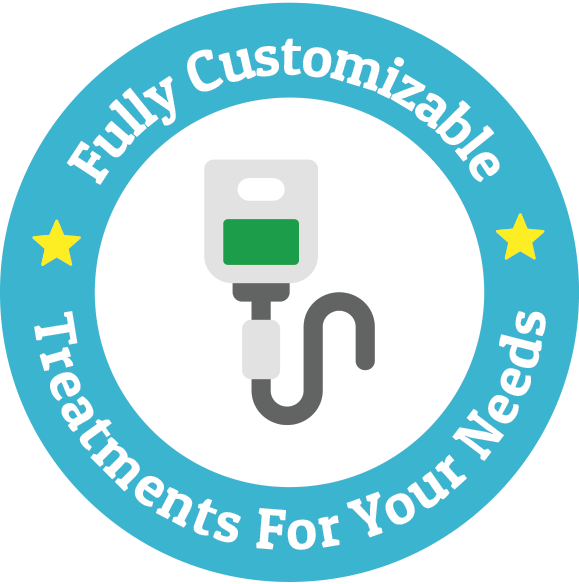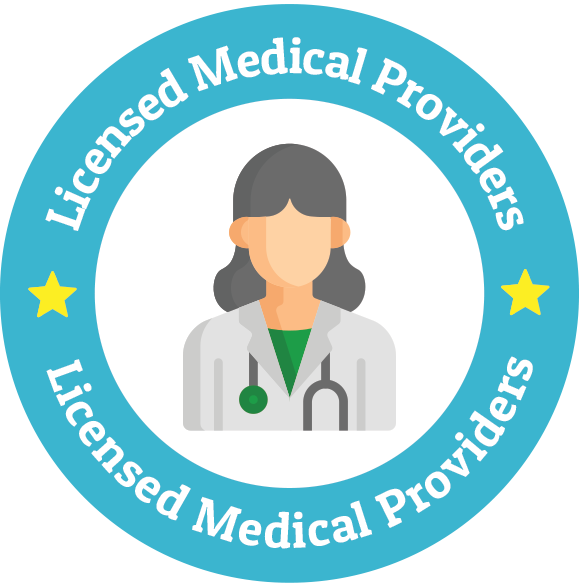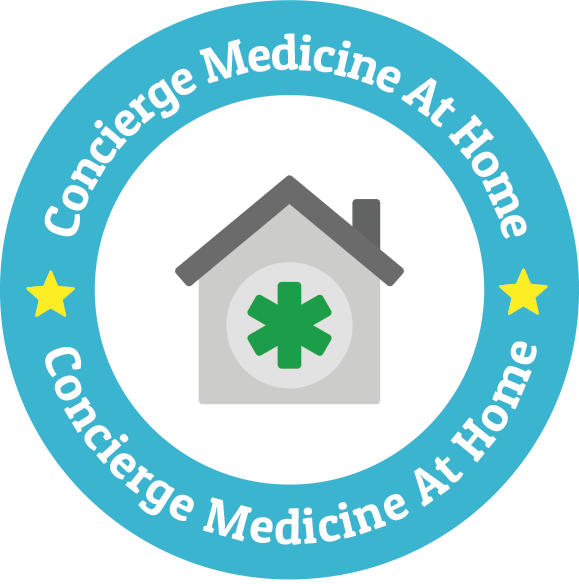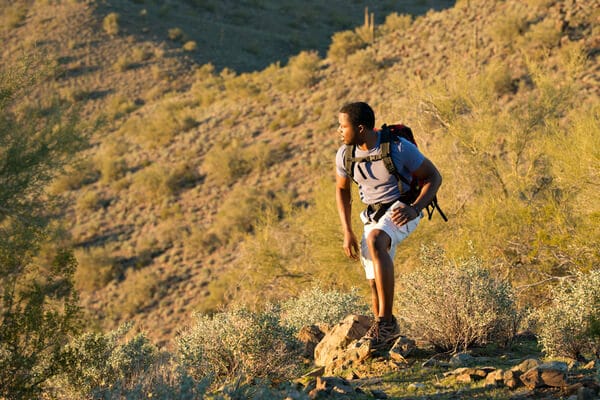It’s hard to enjoy outdoor activities such as skiing, snowboarding, hiking, mountain biking, and more if you have altitude sickness. Mobile IV Nurses specializes in fast and convenient IV therapy for many issues, including high altitude sickness treatment, so you can get back out there and tackle the slopes.
Effective Altitude Sickness Treatment
IV therapy works well for easing symptoms of altitude sickness as altitude IV treatments are specifically designed to deliver rapid relief by targeting the root cause. Do electrolytes help with altitude sickness? Absolutely, and each drip IV contains fluids packed with vitamins, minerals, and electrolytes the body needs to feel better. Plus, IV therapy infuses these powerful fluids right into the bloodstream, so they get to work faster than oral medications that need to pass through the digestive system before activating.
Altitude sickness can be treated with IV fluids from Mobile IV Nurses. We deliver high-quality IV therapy services to your home, hotel room, or other convenient location so you can rest and relax during treatment.
Altitude Sickness Symptoms
When you’re in Arizona’s mountainous regions or hiking Humphreys Peak, Fremont Peak, or Mount Baldy, oxygen and air pressure levels are lower than when you’re closer to sea level. That change can result in altitude sickness. Recognizing altitude sickness symptoms early can prevent the condition from worsening. You may notice:
- Headaches
- Nausea or vomiting
- Stomach uneasiness
- A dizzy or lightheaded sensation
- Problems sleeping or insomnia
- Shortness of breath
- Lack of appetite
- Rising heart rate
- Difficulties with coordination
Your age, weight, and blood pressure can affect the likelihood of developing altitude sickness. Symptoms usually appear soon after you’ve moved from a low to high altitude. The higher up you go, the more likely altitude sickness may occur. And these symptoms can stick around — mild altitude sickness can last up to 36 hours. Altitude sickness may also worsen, causing advanced symptoms like:
- Extreme fatigue
- Mental confusion and illogical behavior
- Cyanosis, turning the skin and nails blue
- Shortness of breath even when still
- High heart rate
- Increased coordination issues, including struggling to walk or sit up straight
- Issues with the lungs, heart, or nervous system
IV fluids for mild altitude sickness offer quick symptom relief. Advanced altitude sickness may require medical attention.
Swift, Accessible Therapy for Mild Symptoms
Sometimes, just visiting a city with a higher elevation than your body is accustomed to will result in altitude sickness symptoms. For example, many areas in Colorado, like Denver, have high altitudes, with an average state altitude of roughly 6,800 feet above sea level. When adapting to such high altitudes, you may not immediately realize the nature of your ailment. Mild altitude sickness symptoms should respond to mobile IV therapy, and we offer responsive services in various high-altitude regions in:
- Arizona
- Florida
- Georgia
- Tennessee
- Utah
Our sister companies offer exceptional solutions in Colorado and Texas. Avoid getting to the point where you need to go to the hospital by getting IV treatments for altitude sickness as soon as possible. Visit a service location near you.
Benefits of IV Treatment for Altitude Sickness
The alternatives to IV therapy for altitude sickness are pretty basic. These altitude sickness treatments state that you should stop and rest and avoid climbing any higher. Don’t resume climbing for another 24 to 48 hours after recovery.
Take ibuprofen or a similar non-steroidal anti-inflammatory drug (NSAID) if you have a headache. Drink plenty of water. If feeling nauseous, take anti-nausea medication. Integrating altitude IV therapy can expedite recovery and alleviate discomfort.
That’s all good information and will help someone dealing with altitude sickness. However, drinking lots of water and taking oral medication means the fluids and drugs must pass through your gastrointestinal system. That takes time. If you want to rehydrate and feel better as fast as possible, IV therapy sends fluids and medication directly into your bloodstream. Electrolytes for altitude sickness are essential components of effective IV therapy, ensuring swift symptom alleviation. In fact, you may find relief in as little as 30 minutes. If you want, you can start climbing again once you’ve passed the recommended 24 to 48 hours after recovery.
Effective Altitude Sickness Treatment
IV therapy works well for easing symptoms of altitude sickness. Each drip IV contains fluids packed with vitamins, minerals, and electrolytes the body needs to feel better, including:
- Saline: IVs contain 1,000c of a sterile saltwater called saline. This solution helps send other IV nutrients around the body, refreshes electrolytes, and rehydrates you. You can replace standard saline with Lactated Ringer’s, a sodium lactate solution with saline’s benefits that can prevent too-high body fluid levels.
- Vitamin C: Also known as ascorbic acid, vitamin C promotes healing and immune system health. This nutrient supports immunity and cell health and fights infection, disease, and inflammation.
- Zinc: You can trust zinc to defend against infection and disease. High altitudes open you up to respiratory challenges, and zinc’s immune-supporting capabilities fight infections and improve wound healing.
- B complex: B-group vitamins, including thiamine, riboflavin, niacin, pantothenic, and pyridoxine, make up the B complex essentials. This vitamin powerhouse offers various benefits for the nervous system, cellular metabolism, energy levels, fatigue, and neurological issues.
- Vitamin B12: This energy-elevating B vitamin can reduce altitude symptoms such as migraine intensity and fatigue. B12 also improves blood cell, nerve, and metabolic health.
- Glutathione: This is an antioxidant that prevents free radical harm and can improve immunity. Glutathione destroys free radicals and regulates the body’s immune response to oxidative stress, keeping you healthy.
- Magnesium: Mg is a popular vitamin for its full-body wellness advantages. It can enhance heart and circulation system wellness, calm migraine symptoms, improve energy, minimize stress, and relieve muscle aches. It is a powerful, active nutrient in our IV solution for holistic altitude sickness relief.
Plus, IV therapy infuses these powerful fluids right into the bloodstream, so they get to work faster than oral medications that need to pass through the digestive system before activating. Altitude sickness can be treated with IV fluids from Mobile IV Nurses. Our Myer’s Cocktail therapy will help alleviate symptoms, including nausea, fatigue, headaches, and migraines, and offer continual full-body support. We deliver high-quality IV therapy services to your home, hotel room, or other convenient location so you can rest and relax during treatment.
Custom Solutions We Recommend for Altitude Sickness
A Myers’ Cocktail with anti-nausea medication is an ideal liquid IV for altitude sickness. The Myers’ Cocktail contains vitamins and minerals, such as B Complex, vitamin B12, vitamin C, magnesium, zinc and the antioxidant glutathione, which are essential for improving energy levels and fighting fatigue. It’s a powerful combination designed to get you back on your feet fast.
At Mobile IV Nurses, you have the option to add supplements and medications to your IVs (for an additional fee). We suggest enhancing your Myers’ Cocktail IV with:
- An anti-nausea medication, such as Zofran, which helps with symptom relief so you can get acclimated to the higher altitude. Zofran, also known as ondansetron, helps with nausea, vomiting, and some stomach discomfort.
- Non-steroidal anti-inflammatory drugs (NSAIDs) such as Toradol, which is an effective treatment for altitude sickness. Toradol can be added to any IV to further reduce any symptoms you are experiencing from the altitude. It is an excellent pain relief medication that can reduce the intensity of headaches, migraines, body aches, and inflammation.
Our staff of medical professionals can help you tailor your IV therapy to your specific needs. We’ll listen to your symptoms and draw on our extensive expertise and diverse wellness solutions to recommend the best therapy. Your wellness — including helping you adjust steadily to elevation — is our priority!
Schedule an Appointment With Mobile IV Nurses
Don’t let high altitudes get you down. Feel uplifted and energized with IV therapy from Mobile IV Nurses. With locations throughout various high-altitude regions in the United States we’re the go-to provider of treatment for altitude sickness. Contact us today to learn more about IV therapy, get details on our different packages, and make an appointment for treatment.





